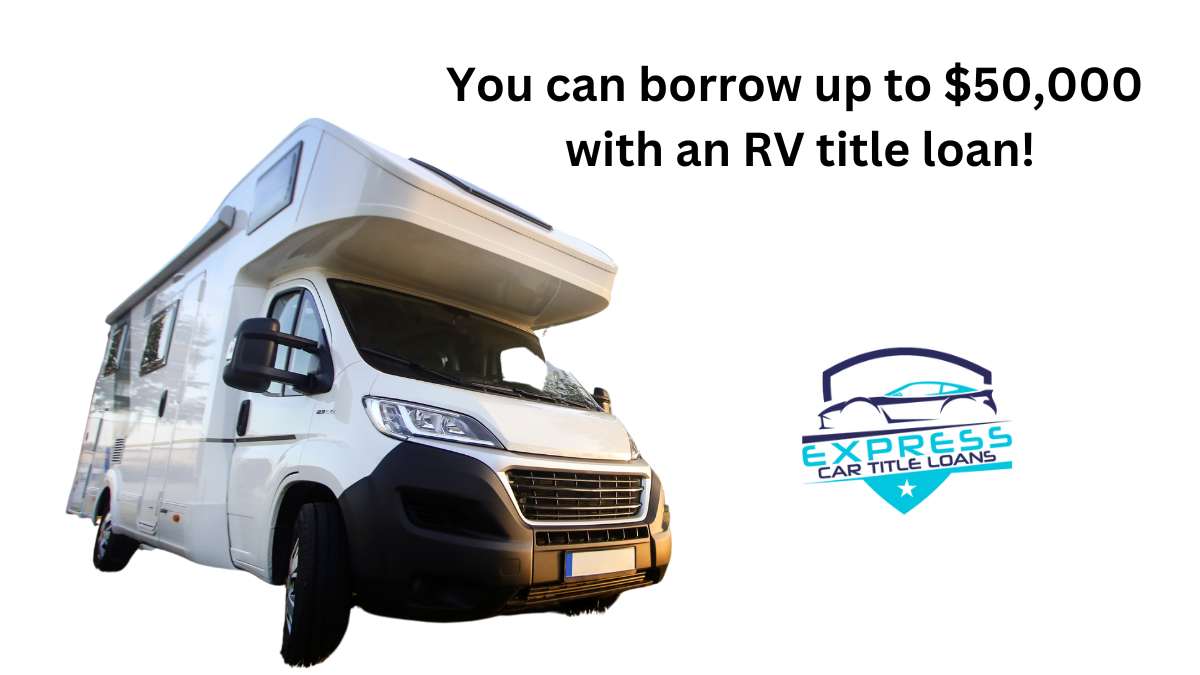Can I Take Out A Title Loan On An RV?
If you have a recreational vehicle or RV, title loans can be a way for you to get money quickly if you need it. A title loan requires that you use your vehicle title as collateral. In the case of an RV, you would give a lender your RV title in exchange for a loan. The amount of the loan is based on your vehicle's value. Also relevant is your ability to repay the loan and your estimated repayment term.
The types of vehicles that might be eligible for RV title loans include:

- Class A motorhomes.
- Class B motorhomes.
- Class C motorhomes.
- Travel trailers.
- Fifth-wheel.
- Toy haulers.
- Pop-up campers.
How Do RV Title Loans Work?
Getting an RV title loan works similarly to getting a title loan for any type of vehicle.- You start by applying through the lender and providing information about your RV, such as its make, model and mileage. The lender may inspect your RV to determine its value, affecting how much they will lend you.
- You give the lender your RV title, which must be in your name and free of existing loans or liens.
- If a lender approves your application, they will offer you a loan based on your RV’s value and their lending criteria. This amount is usually a percentage of your RV’s appraised value.
- At this point, you receive the loan’s terms and conditions. This includes interest rates, fees and the repayment schedule.
- If you agree to the terms, you sign a contract that details your responsibilities and what will happen if you default.
- Once you sign the lender’s agreement, you will receive loan funds and be responsible for repaying your loan based on the outlined terms.

How Much Can You Get for RV Title Loans?
The amount you can get for a title loan on an RV depends on factors like:- The RV’s appraised value. Lenders usually offer a loan based on a percentage of the RV's value, known as the loan-to-value ratio. The percentage varies but typically ranges from 50% to 80%.
- Lender policies. Different lenders set their policies for loan amounts they’ll give. In the case of 2nd lien title loans and title loans with rebuilt titles, you can often borrow 40% or less of the RV's value.
- Your financial situation. This includes your income, credit history and your perceived ability to repay a loan.
What Should You Consider Before Getting a Title Loan On an RV?
Some factors to remember before getting a title loan on an RV include:- Make sure the title is in your name, and you have clear ownership of the RV.
- Understand the value of your RV because the amount you’re offered will probably depend on that.
- Carefully review any terms and conditions and ensure you understand the agreement details for the loan before signing.
- Make sure you can repay the loan based on the terms you agree on. If you default on a title loan, you can lose your RV.
Are There State Restrictions on RV Title Loans?
Some states generally regulate title loans, and your state may have more extensive regulations for RV loans. For example, some states set maximum title loan amounts, including for RVs. Many states restrict the maximum interest rate a lender can charge, and some states limit the length of time a title loan can be issued. Similar to car title loans in California, a lender can only offer a title loan on an RV with an interest rate of 36% or lower. That's great for the customer, but it limits the lending options as most title loan companies won't offer loans at those rates. Some states require title loan lenders to be licensed, while others don’t allow them at all. Are you looking to get a title loan on an RV that's not entirely paid off? It would be rare for a lender to offer you funding if you’re still paying off an RV. The lender who financed the initial RV purchase has a lien on the title until the RV is paid off. While you generally can’t use an RV for collateral on another loan if there’s an existing lienholder, some lenders will let you replace your current RV loan with a new loan. The new lender would pay off your remaining balance and become the new lienholder on the title. This process could potentially allow you to use your RV as collateral.What Do You Need to Get an RV Title Loan?
Every lender is going to have their own requirements, but generally, some of the things you might need to provide to get a title loan include:- Valid ID
- Lien Free Title
- Proof of income
- Vehicle registration
- Proof of insurance
